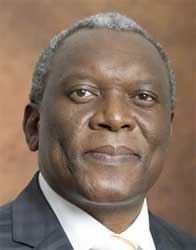
Related
Top stories






LifestyleWhen to stop Googling and call the vet: Expert advice on pet allergies from dotsure.co.za
dotsure.co.za 2 days
More news

















In his budget vote briefing‚ Cwele advocated local loop unbundling - the process by which a Telkom competitor can use its local connections. Access to Telkom's network would save its rivals time and costs.
Local loop unbundling has been successfully used in many countries to allow competition to a dominant incumbent that has had many years and government protection to build its network.
Telkom‚ which is listed on the JSE‚ with the government holding 54% of its shares‚ has vigorously opposed local loop unbundling in the past and effectively shut out its only competitor‚ Neotel.
Neotel was sold to cellular network operator Vodacom earlier this year having been owned by the Indian global telecommunications group Tata Communications for 10 years.
"We need more local loops‚ and more participants in those local loops for broadband to be developed. What we are saying is that it is time for fibre (fibreoptic cable to be laid) to the home‚" Cwele said.
He said the government had not yet determined what it wanted to do with its shareholding in Telkom‚ such as increasing or decreasing it‚ but he praised the group's management for turning it around.
He said Telkom remained strategic to the government's broadband plans as the bulk of the 170‚000km of fibreoptic cable in use belonged to the group.
It emerged during the Department of Public Enterprises budget vote debate that state-owned company Broadband Infraco would be transferred from that department to the new Department of Telecommunications and Postal Services.
In his budget vote speech‚ Cwele said he had instructed telecommunications regulator the Independent Communications Authority of South Africa (Icasa) to develop regulations on pricing transparency‚ to enable consumers to have a clear understanding of the costs of the services they paid for.
Cwele said he would direct Icasa to develop regulations for premium content to govern how the various broadcasters would access it for their services.

For more than two decades, I-Net Bridge has been one of South Africa’s preferred electronic providers of innovative solutions, data of the highest calibre, reliable platforms and excellent supporting systems. Our products include workstations, web applications and data feeds packaged with in-depth news and powerful analytical tools empowering clients to make meaningful decisions.
We pride ourselves on our wide variety of in-house skills, encompassing multiple platforms and applications. These skills enable us to not only function as a first class facility, but also design, implement and support all our client needs at a level that confirms I-Net Bridge a leader in its field.
Go to: http://www.inet.co.za